 Nature, Freedom & the West
Nature, Freedom & the West Nature, Freedom & the West
Nature, Freedom & the West
This is the title of the final chapter of Donald Worster's Rivers of Empire
excerpts of which are below:
As an environmental historian seeking to discover some sense of the place we call the West, Worster concludes that we have a large bill to pay for what we have done to the western landscape in the name of civilization, progress and manifest destiny.
![]()
"technological dominance over nature became an obstacle to new possibilities, to creativity."
"The sense of being trapped by one own inventions pervades industrial societies everywhere."
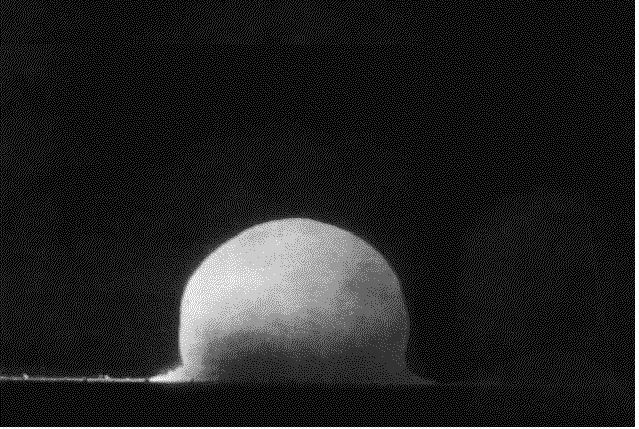
"Does stagnation have to be the future of the west?"
"can . . . people walk free from their history?"
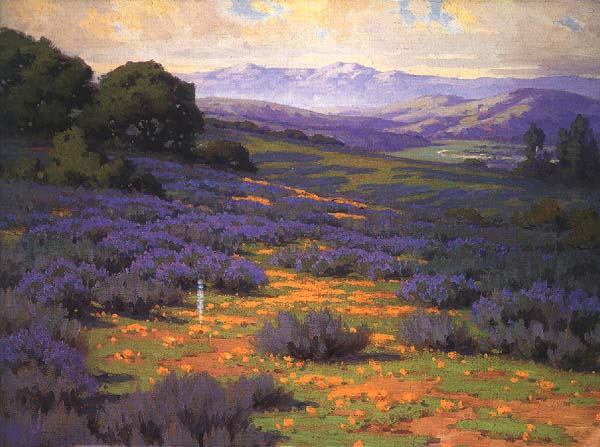
"Long the mythic land of new beginnings, it is now a region heavily encased in its past."
p. 329.
"What has been done there with water and land. . . has had consequences for the people as well."
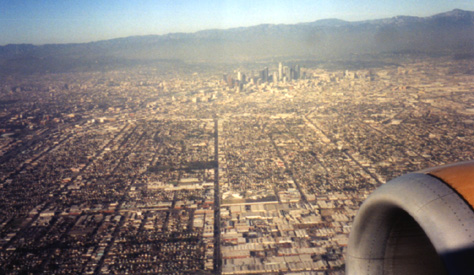
"Concentrated power and hierarchy based on the command of scarce water."
Despite the empire's loss of legitimacy and ecological sustainability, they will resist any substantial changes in it."
p. 329.
"pessimistic analysis."

San Diego Bay, looking north by northwest.
"A new relation to nature and a new technics."
p. 331.
Large institutions
"they are too insulated from the results of their actions to learn, to adjust, to harmonize."
p. 332
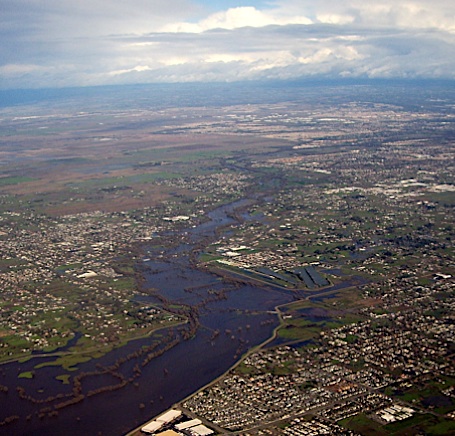
"When it does undertake to make use of an entity like a river, that effort is more easily undone if it goes awry, and the damage is more readily perceived and repaired."
p. 332
Democracy -- dispersal of power into as many hands as possible
ecological stability has been lost and may not be recoverable.
"In the years to come, practical men and women looking to create a new West along these lines might reexamine the social and environmental ideals of John Wesley Powell, distilling out of them their democratic essence."
p. 332.
 "Radical devolution of power to ordinary people"
"Radical devolution of power to ordinary people"
This was John Wesley Powell's vision for the resettlement of the rural west, that never materialized in any lasting sense, except in the Soil Conservation Districts of the 1936 legislation.
p. 333.
"impersonal structures of power that have made democracy little more than a ritual of ratifying choices already made of others -- in acquiescing in what has been done to us."
"producing food and fiber for local use."
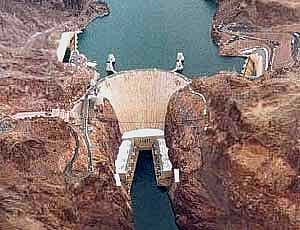
"technological giantism."
The California Gold Rush.
"We have tried constantly to evade the discipline of nature by moving on to new, virgin lands when we spoiled those in our possession, by drawing on distant sources of commodities when we exhausted the local supplies, and by calling on a federal agency for help when we got in trouble."
p. 333.
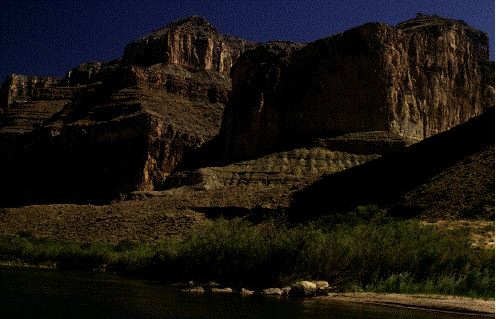
Our resettlement of the American west may yet be "Leading to a more ecologically conscious people."
p. 334.
The future square, new or fair deal has to give us "a better chance to participate and share in river use."
"That is what the West, the last American place for dreaming and for evasion, has to tell us in the starkest possible terms."

The Getty Museum, in the Santa Monica Mountains, Sepulveda Canyon, Southern Ca., JVS, 2004.
Worster quotes E. F. Schumacher, author of Small is Beautiful.
"every increase in needs tends to increase one's dependence on outside forces over which one cannot have control, and therefore increases existential fear."
Worster creates a new vision of the west and encourages us to take up the challenge of creating a more egalitarian, fair and democratic society at this place -- the end of our national "Open road."
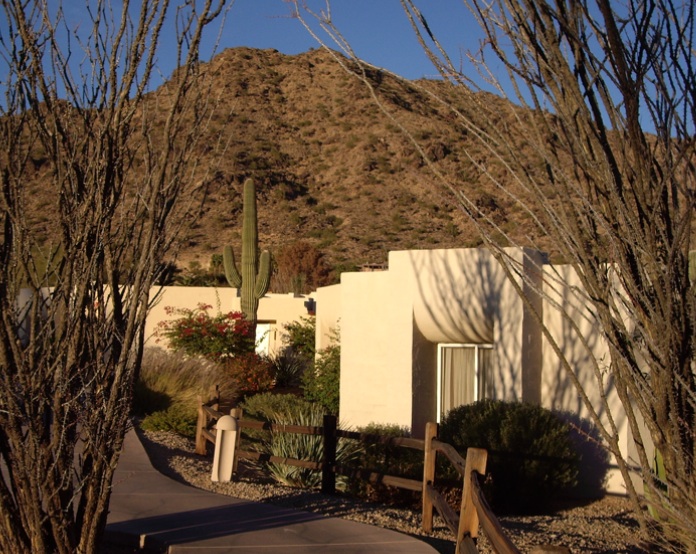
"Deserts have long had a remarkable liberating effect on people."
"to show humans what their true needs were... and arrive at a sense of essentials." p. 334
"a place of inspiration and training"
"They would come then to the river to see a reflection of their own liberated minds, running free and easy."
"They would irrigate their spirit more than their ego."
"A idyll from an inaccessible yesterday."
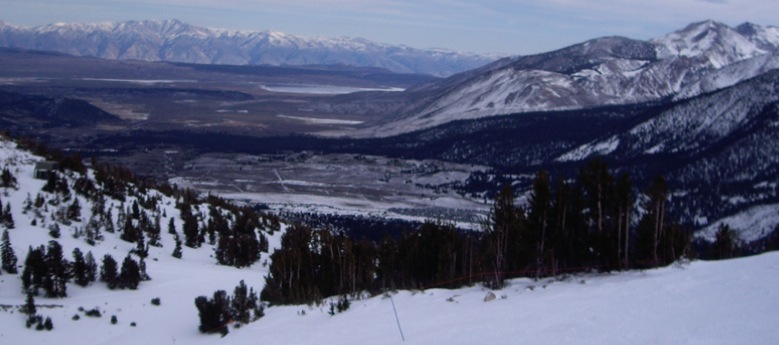
The Long Valley Caldera from Mammoth Mountain.
"In your dreams are the phantoms of paradise"
By Joseph Siry
We owe a vast debt to our dreams in the west. The debt's payment that is still accruing is owed to the small farmers, ghetto dwellers, the land itself, and its original inhabitants, the American Indians. It was their homestead originally confined by the mesas and limited by the water -- they farmed the riverbeds and hauled water over vast distances. We dreamed a west into existence while they encountered its harshness and extracted spiritual solace from the scarcity of the desert. From those innocent dreams born of our disappointments, arose the fantasy traders today who inhabit the west. The illusion spinners have marketed those myths to a nation wishing to be deceived.
The west is the origin -- after all -- of "Marlboro men," and cowgirls of some enduring youth. From out of the west have come, Disneyland, Knot's Berry farm, and surrogate homes for London Bridge and the Queen Mary. William Randolph Hearst built his castle on the bluffs overlooking the Pacific coast at San Simeon, California. Its vast construction of paradise by the sea inspired Orson Wells to have his celluloid hero, Citizen Cain, build his Xanadu in the west. Today Hoover dam lights and waters the streets and lawns of Las Vegas, Hollywood and east Los Angeles alike. But Hoover dam in Boulder Canyon on the Colorado River has become the inspiration of the Brazilians, Egyptians and the Chinese to build ever-larger hunks of concrete glory for the benefit of flood control, electricity and progressive freedom from scarcity.
Among these places are enough illusions to drown the desert and submerge its inherent sense of place. The west has been the source of fables and raw materials for the post industrial celluloid and silicon empires the same way western water once spawned gold, silver, railroad, oil and agrarian empires. The bonanza based on mineral and resource wealth still generates the liberal ideal in the form of this democratic illusion amidst the trappings of the corporate state. The west feeds our insecurities, our juvenile infatuations and our visions of get rich quick lotteries. Atomic bombs, aerospace and computer industries too have been kept alive equally by cheap water and powerful delusions in the west.
Donald Worster, Marc Reisner, and Wallace Stegner have created a legacy in print for numerous other modern western authors to remind us that our fable of the American West is a dangerous deceit. The fable continues to enchant us, someday it may perchance enlighten us to our own folly of looking for the very thing out there that was in us all along -- resilience.
Date: 19 November 2000